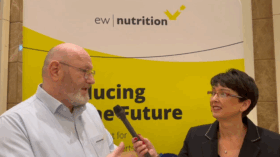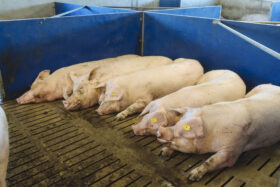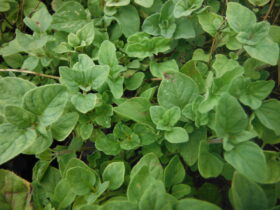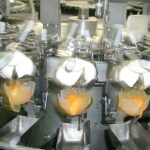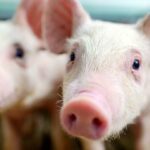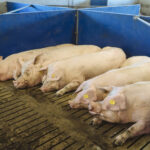Conference Report
Nowadays, climate change is an omnipresent topic. Extreme weather events, such as high temperatures and heavy rainfall, are becoming more frequent, and there has been a rapid increase in greenhouse gas concentrations since the 1850s. Climate change will also have consequences for the pig industry. Dr. Jan Fledderus, Schothorst Feed Research, discussed upcoming issues for the pig industry at EW Nutrition’s Swine Academy.
Shift in mycotoxin-producing fungi
Climate change is likely to expand the geographical range of mycotoxin-producing fungi, exposing new crops and areas previously considered low risk to higher contamination levels. For instance, regions in South and Eastern Europe have reported increased occurrences of aflatoxins due to hotter and drier conditions favoring Aspergillus flavus over Fusarium species.
European Green Deal
The European Commission has adopted the European Green Deal, a comprehensive policy initiative to address climate change and promote sustainability within the European Union (EU). It sets ambitious targets and outlines a roadmap for reducing greenhouse gases by at least 55% by 2030, compared to 1990 levels, and achieving climate neutrality by 2050. The EU’s primary goal is to ensure food security while reducing environmental and climate footprint.
The EU regulation on deforestation-free products includes soybeans and palm oil. The objective is to guarantee that the products EU citizens consume do not contribute to deforestation or forest degradation worldwide. Effective 1 January 2026, all imported soy must be free of deforestation. This means soybeans must be from areas not deforested since 1 January 2021.
The Green Deal will affect pig production
While it is still early to fully assess the impacts of the European Green Deal on pig farmers, it is clear that regulatory changes, economic pressures, and shifts in consumer behavior will shape the future of pig farming in the EU. Several potential consequences are still being assessed, including:
- Halving nutrient losses, particularly nitrogen, influences the eutrophication of natural areas and surface water, which will likely require pig farmers to adjust their feeding strategies and potentially reduce herd sizes.
- The use of food waste and by-products, such as wheat bran, in pig diets will be encouraged, promoting a circular economy approach that minimizes waste and enhances resource efficiency.
- Costs (notably related to feed) are likely to increase due to manure management and a reduction in crop production due to stricter environmental regulations.
- Farmers may need to invest in more sustainable practices and technologies to comply with new regulations, which could strain finances unless supported by subsidies or compensatory payments.
- Reduced supply and higher consumer prices for pigmeat products.
- Encouraging a shift towards plant-based diets in humans, which may reduce demand for pork (and other animal proteins).
- There may be opportunities for the pig industry to develop premium products that meet sustainability criteria or cater to specific consumer preferences.
Defining sustainability
It is necessary to apply a uniform method to calculate sustainability parameters and define objectives for “sustainable pig feed.” The Global Feed LCA Institute (GFLI) is the global standard for raw material parameters. It gives data by different methods to calculate carbon dioxide (feed/food), with detailed data per country of origin, including peat oxidation. It includes 16 environmental impact categories.
Climate-neutral pig production
How does this impact pig production? Firstly, feed contributes 50-70% of CO2 equivalents/kg of pigmeat. Secondly, it is essential to have a uniform method to calculate the CO2 equivalents/kg of pigmeat. Currently, there are no financial benefits for pig farmers to improve sustainability.
Based on scenario calculations, Dr. Fledderus concluded that it is challenging to realize ‘zero emissions’ and that improving on all environmental impact parameters is not realistic. Formulating pig diets to reduce CO2 equivalents to produce ‘green pork’ increases feed costs. The obvious question is, who will pay for this?
EW Nutrition’s Swine Academy took place in Ho Chi Minh City and Bangkok in October 2024. Dr. Jan Fledderus, Product Manager and Consultant at the S&C team at Schothorst Feed Research, one of the founders of the Advanced Feed Package and with a strong focus on continuously improving the price/quality ratio of the diets for a competitive pig sector, was a reputable guest speaker in these events.
